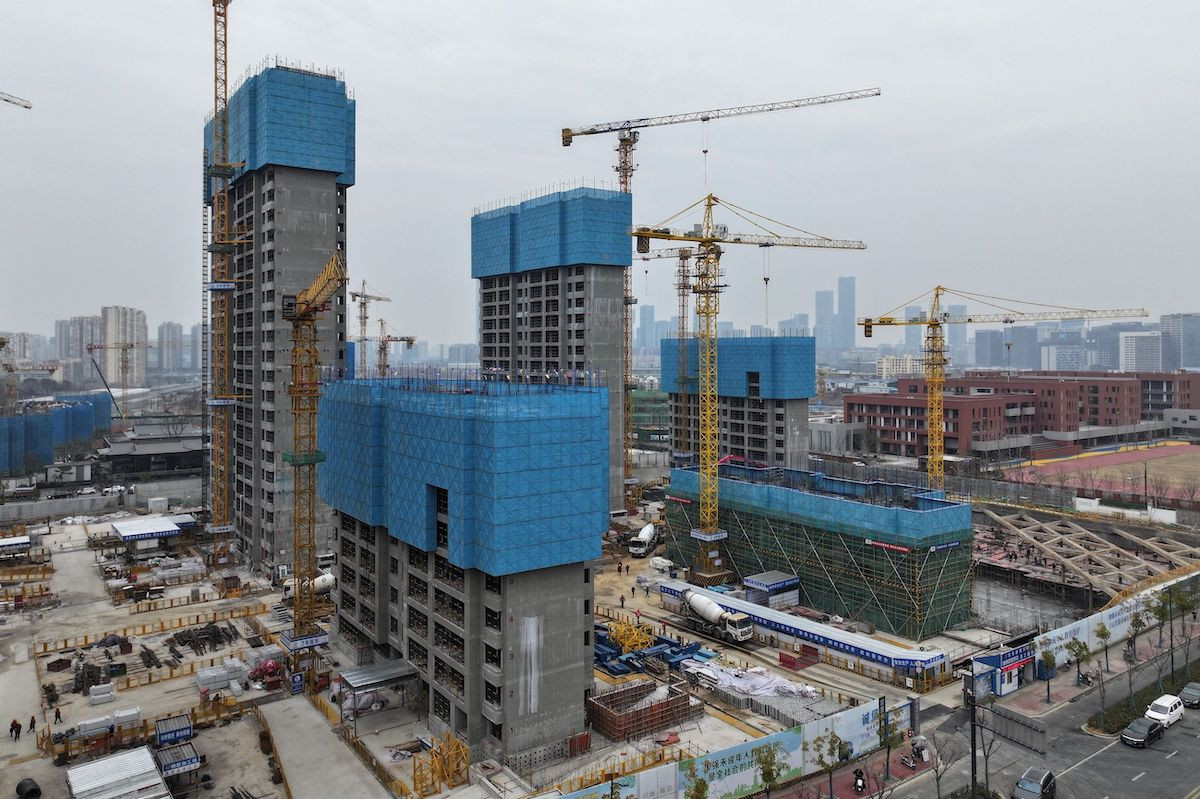According to The Wall Street Journal, the real estate crisis in China has dragged down the economy. Many workers have lost their jobs, and numerous large companies are on the verge of bankruptcy.
Data from the National Bureau of Statistics of China shows that nationwide sales of new homes have decreased by 6% in the past year. This is the lowest level since 2016. In the secondary market, compared to 2022, housing prices in the four major cities of Beijing, Shanghai, Guangzhou, and Shenzhen recorded a decline of 11% to 14% in December 2023.
There is currently a shortage of project supply. Meanwhile, homebuyers tend to repay their loans early or borrow less. According to data from S&P Global Ratings, Chinese real estate companies defaulted on approximately $125 billion of debt during the 2020-2023 period. They are currently “stuck” in negotiations with foreign investors.

A real estate trading floor in Hangzhou, Zhejiang Province, China. (Photo: Zuma Press) |
Many real estate companies and local governments in China are making efforts to attract homebuyers. This situation has led to some companies using unconventional advertising strategies.
For example, a real estate company in Tianjin released a video advertisement with the slogan “buy a house, get a wife for free.” This is a wordplay, using Chinese characters similar to the phrase “buy a house, get a wife,” but arranged in a different sentence structure. This led to the company being fined $4,184 (equivalent to 100 million Vietnamese Dong) for misleading advertising.
Last year, a property developer in Zhejiang Province also promised to give gold bars to those who purchase homes in their residential area.
At a conference in early January 2024, Sheng Song Cheng, former director of the statistics department at the People’s Bank of China, predicted that the real estate crisis will last for another two years. He forecasted that the sales of new homes in 2024 and 2025 will decrease by more than 5%.
Raymond Yeung, a China economist at ANZ, stated that the demand for buying houses is decreasing as more people realize that real estate is no longer a safe investment.
Li-Gang Liu, an Asia-Pacific economist at Citi Global Wealth Investments, suggested that the People’s Bank of China could provide solutions to mitigate the situation, but they need to be more decisive.

An unfinished apartment building in Nanjing, Jiangsu Province, China. (Photo: Zuma Press) |
The real estate crisis in China has led to more than 50 businesses, mostly private ones, facing bankruptcy. Property developers still have millions of sold houses that have not been completed. The government has implemented a program to support with billions of US dollars to help developers complete their projects, but this solution has not been effective.
The stagnant real estate market in China has also caused a budget deficit in some regions that previously relied heavily on land-related revenue. According to incomplete statistics, these regions are facing budget deficits ranging from $400 to $800 billion. To prevent a debt crisis, the Chinese government has launched a budget restructuring program for these regions.
Anh Phuong






































